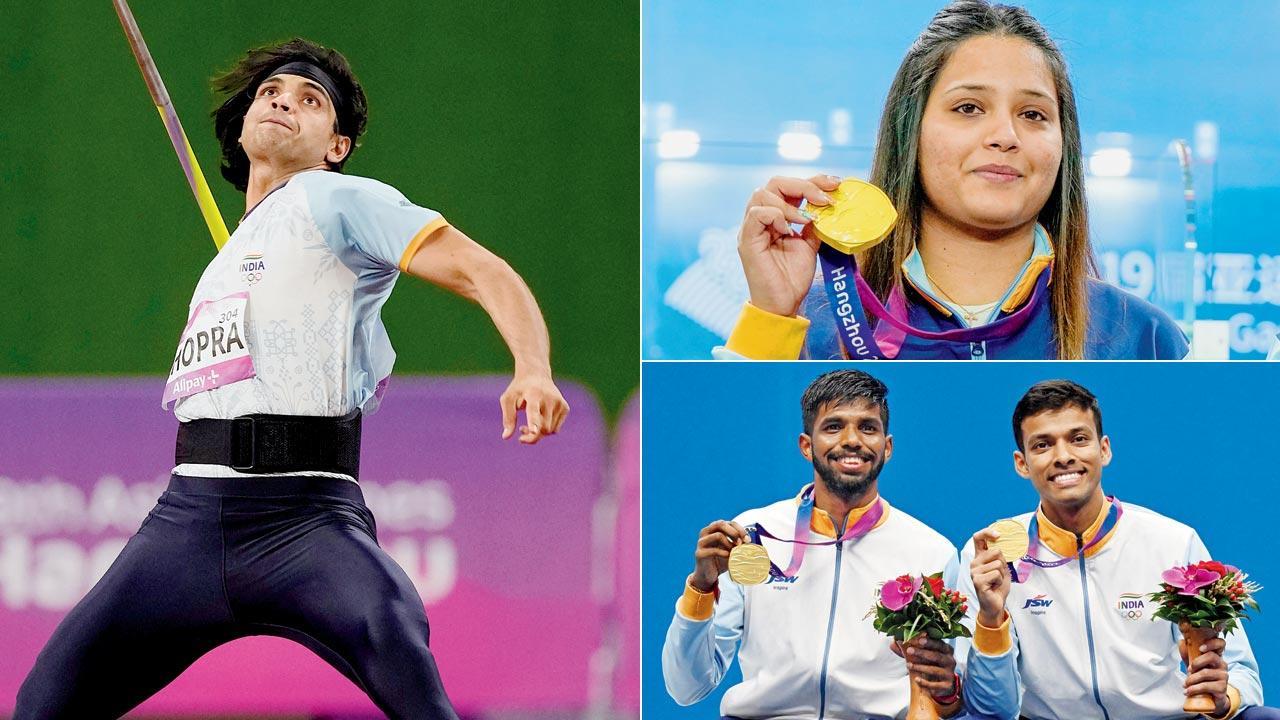Home / Entertainment / Bollywood News / Article /
Fuel for the finish line
Updated On: 11 October, 2023 07:02 AM IST | Mumbai | Sonia Lulla
You were enthralled watching them at the Asian Games on TV. Now nutrition coach to top athletes who brought home medals at this and previous competitions shares how athletic demands vary for each sport

Neeraj Chopra; Dipika Pallikal; Asian Games 2023 Gold medallists Rankireddy and Shetty. Pictures for representational use. pics/AFP, Facebook
Cinching a record-breaking 107 wins at the recently concluded Asian Games in Hangzhou, India brought home 28 gold, 38 silvers and 41 bronze medals. With the country’s medal tally breaching the three-digit mark for the first time in the history of the games, nutritionist Krushmi Chheda—coach to athletes like Neeraj Chopra, Satwiksairaj Rankireddy and Chirag Shetty, Rohan Bopanna, Saurav Ghosal, Dipika Pallikal, and Vishnu Saravanan, among others—shares that nutritional requirements of athletes is as individualistic as one can fancy.
 Sports scientist Krushmi Chheda
Sports scientist Krushmi Chheda



